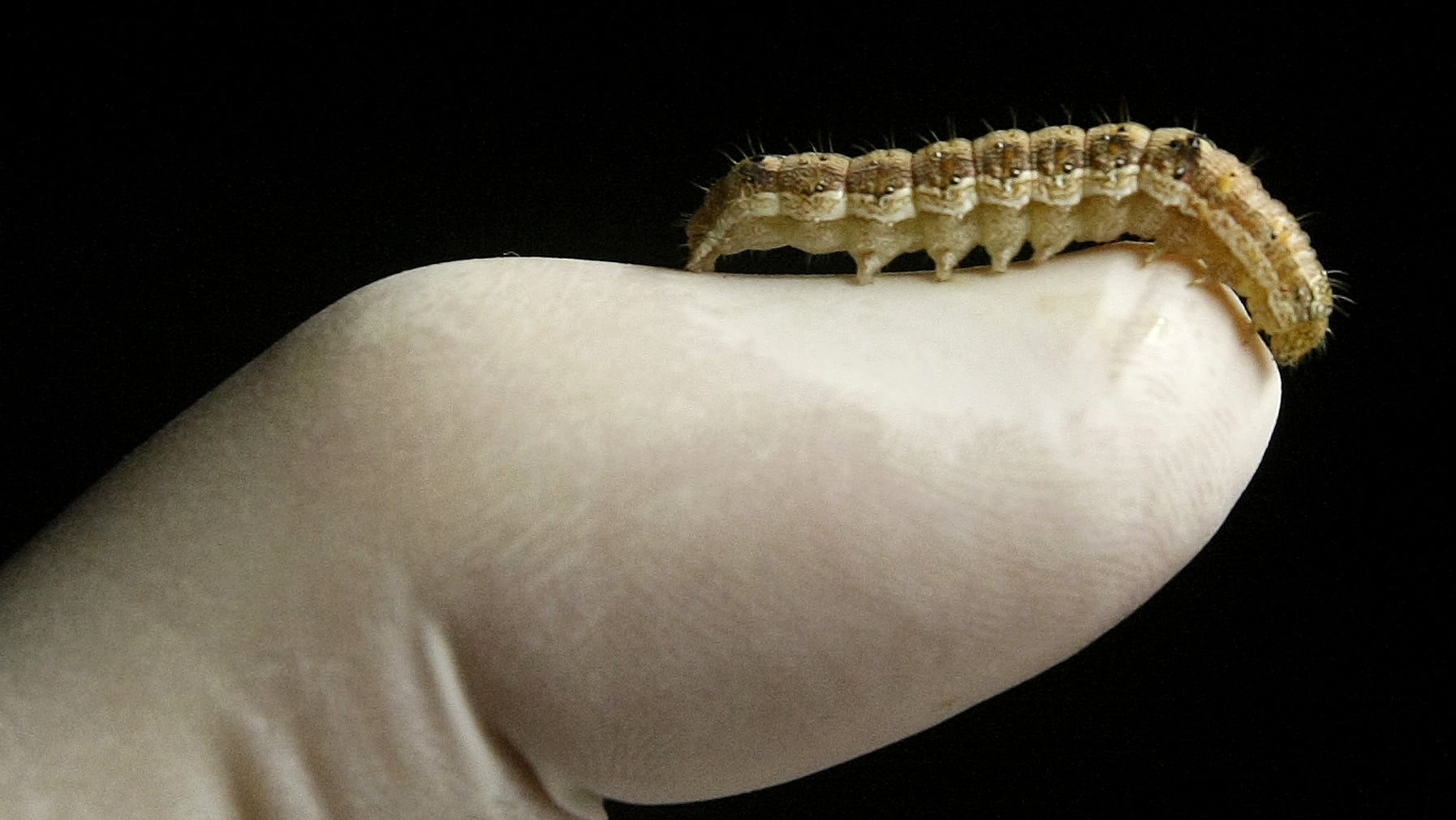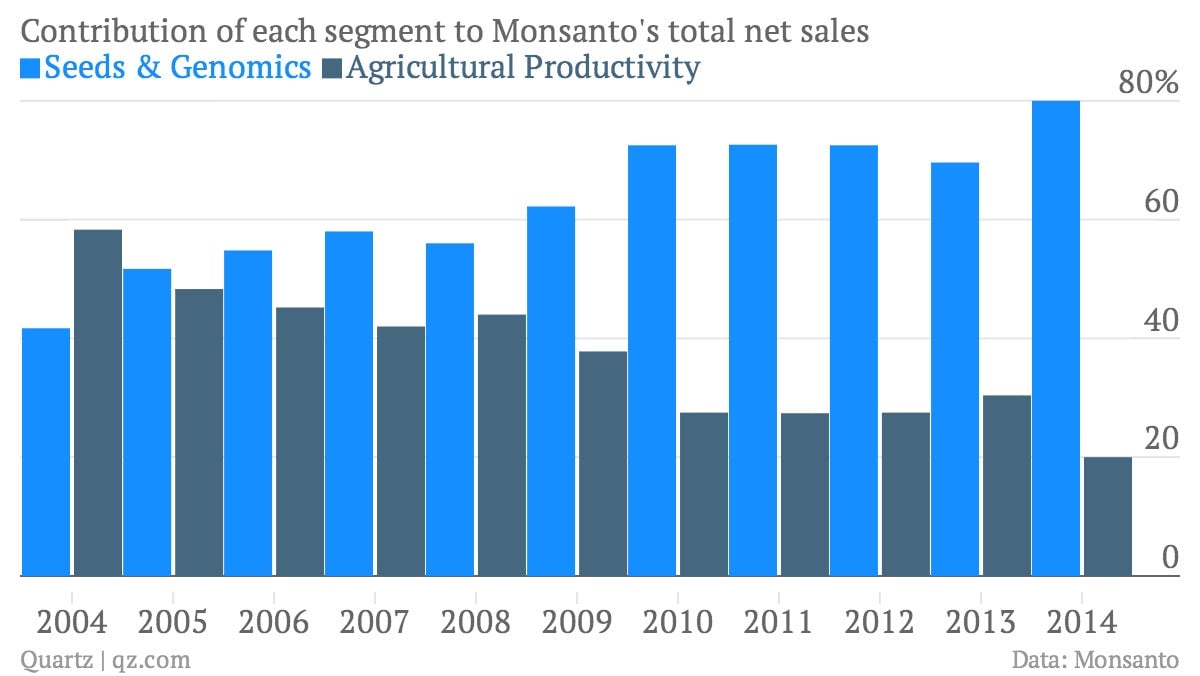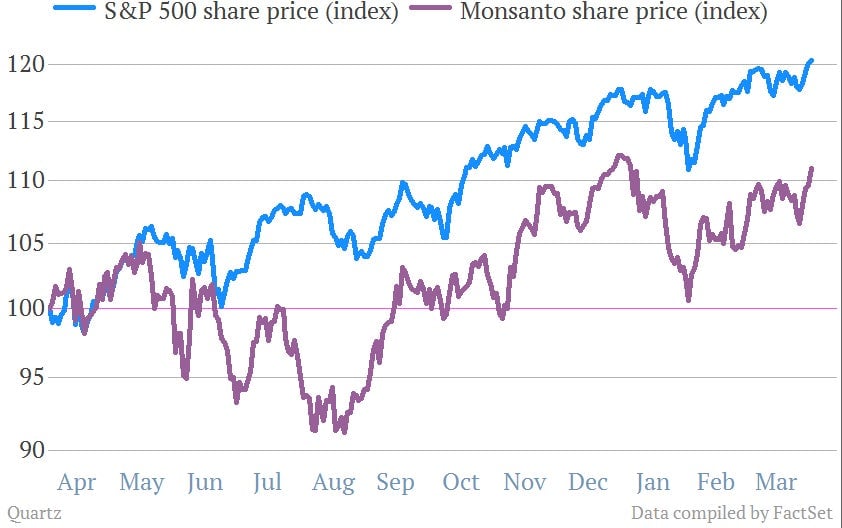Monsanto is making a killing off world hunger and its bug-eviscerating seeds
The numbers: Terrific. The world’s biggest seed-seller reported earnings of $1.7 billion, up from $1.5 billion a year earlier. Earnings-per-share of $3.15 beat consensus estimates of between $3.07 and $3.04 by a wide margin.



The numbers: Terrific. The world’s biggest seed-seller reported earnings of $1.7 billion, up from $1.5 billion a year earlier. Earnings-per-share of $3.15 beat consensus estimates of between $3.07 and $3.04 by a wide margin.
The takeaway: Despite strong earnings of late, Monsanto’s share price trails the S&P 500 for the last 12 months by double-digits (paywall). That’s partially because of a wave of patent expirations for Monsanto’s seed varieties, and partially because its major markets, notably the US, are saturated. This means Monsanto’s continued growth depends on whether it’s able to boost productivity in existing markets and crack new markets—which is tricky when so many countries have banned genetically modified crops. Monsanto has two main segments: agricultural productivity, and seeds and genomics.
Monsanto’s medium-term strategy has been to shift away from agricultural products, and toward the more promising margins possible in its seed business. For example, the patent for its smash-hit herbicide Roundup, a big historical growth driver, ended a few years ago. But the company’s Roundup-related seed business has thrived. In order to use Roundup and actually grow anything, farmers and backyard gardeners need to buy Roundup-resistant seeds for corn, soy, cotton and other key agricultural commodities. The shift in focus seems to be working: Monsanto’s seeds and genomics segment made up nearly 80% of its sales, versus 70% for the year ended August 2013.

Monsanto’s management also emphasized its long-term strategy in the earnings call today, including developing products such as Precision Ag, its all-in-one digital crop management platform. It will be intriguing to see whether investors are convinced.
What’s interesting: Virulent insects are bad news for farmers. But they’re often good news for Monsanto. That’s why a very hungry caterpillar that likely hails from Asia and is causing panic among Brazilian soy and cotton farmers has helped create what management hailed today as its “biggest milestone.” The caterpillar outbreak is so severe that the Brazilian government has put the country on “red alert,” and officials have stepped up port inspections. And the usually anti-GM government is allowing sales of Intacta Roundup-Ready 2 Pro, Monsanto’s expensive soybean seed, which is laced with a protein from a virus that breaks open the insect’s stomach and kills it. In the call today, management called the Intacta rollout in South America “the biggest launch in Monsanto’s history.” And the company is now selling its genetically tweaked cotton seeds in Brazil, as well.